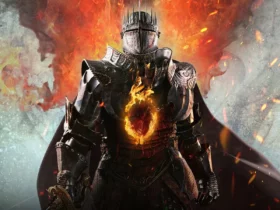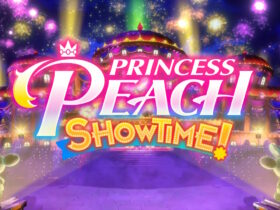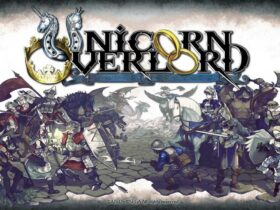Let’s find out together, in this long-winded dedicated review, what are the strengths and weaknesses of the Final Fantasy Pixel Remaster, a reinterpretation of the first six chapters of the Square Enix franchise reproposed in an improved and corrected version
Like it or not, Square Enix has given the world one of the series that has succeeded, in one way or another, to embellish the world of video games iteration after iteration. Born in the now distant 1987, Final Fantasy has been able to demonstrate a propensity for renewal, modernity and knowing how to reinvent itself, creating unique, iconic and unforgettable worlds and characters every time. Except Final Fantasy XV: the dispassionate hatred of every fan towards a chapter that wasn’t what it could have been (and could have really been one of the best in the series) is always justified. But this is not the place, let’s get back on topic.
Waiting for the arrival of Final Fantasy XVI (June is so close and yet so far), Square Enix has decided to re-propose the first six chapters of the franchise in a revised and corrected version also on consoles and not only on PCs and mobile devices. The Final Fantasy Pixel Remaster has already been available for some time, we got lost in the maze of every single pixel (pun intended) of every single world of every single game, and we are finally ready to tell you about it with this review. A gigantic everything in the past that brings not only nostalgia, but also lots and lots of joy.
A general look | Final Fantasy Pixel Remaster review
Before moving on to a roundup of micro-reviews on the individual chapters, we want to give you a general overview of the re-styling that Square Enix has put in place to bring them back into vogue in the Final Fantasy Pixel Remaster. This is because, of course, the retouches were not limited to the aesthetic sector (a wonderful pixel art in our opinion) and sound (with a Uematsu who rearranged himself), but above all they concerned the gameplay. In fact, there have been many additions aimed at improving the quality of life of six games which, as far as longtime fans can tell, to date could be a little too difficult to deal with for those approaching the genre for the first time.
So they were added the multipliers which allow you to advance your team much faster, without even interrupting the achievement of trophies. Also included the option of turn off random encountersfactor that, together with the possibility of saving practically anywhere thanks to the Quick Save, minimizes the risk of losing hours and hours of play (and farming). Among the changes that we most appreciated there is definitely l’Auto-Battlewhich has saved us too many hours of life and clicks on the X button of our Dualsense in the various approaches to level grinding.
Also added the Italian adaptation, excellent from every point of view, a Bestiary complete that serves as an encyclopedia and the aforementioned possibility of obtaining trophies. And be very careful because, even using the multipliers, the six platinums will definitely not be easy to obtain. However, fans of the old hour need not despair: all these additions are obviously optional and you can relive the original experiences just by turning everything off. Surely some changes have been made on a structural level, and those who remember the AI of the enemies of the first three Final Fantasy will understand well why it was definitely necessary, but nothing so sensational as to compromise an authentic experience. And yes: you can also bring the aesthetic and sound sector back to that of a lifetime ago. Ah, nostalgic fag!
![]()
Final Fantasy (1987) | Review Final Fantasy Pixel Remaster
The progenitor of a series is generally the most marked footprint left in the history of the series itself. And so it was also for Final Fantasy I, a video game born as a challenge: a “final fantasy” of a company that could not lose any more money. The first chapter of the series is definitely one of the most difficult to approach, but also the most linear ever. You will not be able to get lost in any way within this fantastic world, in which the four chosen by the crystals move, facing enemies and defeating great evil entities. The Job System is very simple: you will choose the class when you start the game and this will no longer be modifiable during the adventure. An iconic, hard and decidedly unattractive progenitor for newbie players of the genre. Still a great Final Fantasy. [voto: 8.5]
![]()
Final Fantasy II (1988) | Review Final Fantasy Pixel Remaster
The second chapter overturned a decidedly solid gameplay in favor of greater freedom given to the player. In short, once the classes have been abolished, the growth of the characters (who this time, unlike the prequel, have a very specific identity and not named by the player himself) will depend on which parameters will be most stressed during the fights. If we attack a lot with weapons, the physical ones will increase, while using magic (which anyone can learn once they have bought the classic tomes in shops) the magical ones will increase. In short: a unique system of its kind, and some may even say fortunately. And perhaps we are among them. A great pity because, after all, the horizontal plot of Final Fantasy II is much more interesting than its predecessor, which is much more classic. [voto: 7.5]
![]()
Final Fantasy III (1990) | Review Final Fantasy Pixel Remaster
Last chapter of the original trilogy and last Final Fantasy to have turn-based combat (yes, from IV we pass to ATB). Final Fantasy III introduces, in addition to a story that returns more towards the classicism of the first chapter, the possibility of having the characters change class whenever you want outside of battle. A fluid class system, therefore, which certainly gives the gamer greater freedom of customization, but which, in our opinion, makes the combat system lose depth. Choosing a class is practically useless, as just a few fights will be enough for the character to adapt to the new role and then, perhaps, reciprocate it at will. The Chocobo groves are also introduced for the first time, available on the game map and well recognizable to fans of the franchise. Ultimately, however, the third chapter remains an excellent closure for the initial archetype that Square Enix had given to the franchise. [voto: 7.5]
![]()
Final Fantasy IV (1991) | Review Final Fantasy Pixel Remaster
We therefore move on to one of the most universally appreciated chapters. Final Fantasy IV completely changes direction in everything, both in terms of the script, decidedly more complex and with iconic, recognizable and unforgettable characters, and in terms of simple gameplay with the introduction of Active Time Battle, which the franchise will carry with it until the thirteenth chapter (with the exception of Final Fantasy X). Therefore, with the exception of the classic turn-based combat system, the characters will be able to select their action when filling the appropriate waiting bar, deciding, based on their class (default and non-modifiable) whether to attack, flee or defend themselves. Final Fantasy IV is still today one of the essential chapters to know, love and relive: Cecil’s story, net of some ingenuity in the ending, remains on a completely different level compared to its predecessors. [voto: 9]
![]()
Final Fantasy V (1992) | Review Final Fantasy Pixel Remaster
Even in Final Fantasy V the narration and characterization of the characters is predominant compared to the first three chapters. Unlike the IV, however, the story of Bartz, Galuf and Princess Lenna is still much less convincing today than Cecil’s chivalric epic, showing itself with a much weaker and less interesting plot. Gameplay-wise, Final Fantasy V takes up the unconvincing Job System of Final Fantasy III with both handsremodeling and modernizing it. Then the fluid classes return, but in this case, as the level increases in a specific class, the character will obtain passive skills (then selectable from the Handyman class) and commands, which can instead be selected even once the character himself has changed class. Very confusing and unconvincing even today, in our eyes, even if it allows you to customize your team to the maximum. [voto: 7.5]
![]()
Final Fantasy VI (1994) | Review Final Fantasy Pixel Remaster
We have therefore reached the end of this journey with the most important, narratively complex and unforgettable chapter of the entire Final Fantasy Pixel Remaster. Terra’s journey in Final Fantasy VI is still stormy today, both on a practical and emotional level, full of valid ideas then also taken up in the subsequent chapters of the franchise and with a combat system practically comparable to the modernity of the series. Virtually flawless from every point of view, Final Fantasy VI eliminates the Job System by assigning a specific class to each character, not modifiable in any way, and for the first time the Espers take on a fundamental role both in the plot and in the gameplay of the game. If you have the opportunity to recover only one of the chapters of the Pixel Remaster, our advice is to throw yourself headlong towards Final Fantasy VI which today, in 2023, is still one of the masterpieces of the genre. [voto: 10 (+1)]
![]()
Six timeless classics
Net of this review and the strengths and weaknesses of the individual chapters, the Final Fantasy Pixel Remaster brings back six great JRPGs from the early 90s, rejuvenating their gameplay and technical sector, putting them back in the hands of the fans with versions for those who devour them knows and to experience for those who, on the other hand, have never had the opportunity. If we had to choose one out of six, we would definitely recommend Final Fantasy VI which, almost thirty years later, is still that timeless masterpiece that Square Enix can and has to boast of counting among its best video games of all time.
The Final Fantasy Pixel Remaster is out now on PC, PS4 and Nintendo Switch. Let us know what you think below in the comments, we will continue to keep you updated with all the videogame and tech-themed news, guides and reviews! And if you are interested in game keys at advantageous prices, we suggest you take a look at the Kinguin catalogue!
Plus points
- Six timeless classics
- Quality of life additions and improvements
- Delightful pixel art and masterful rearrangement of the soundtrack
- Final Fantasy VI is still the masterpiece of thirty years ago
Points against
- Perhaps too simplified for veterans
- Final Fantasy III and V are still not very convincing with their fluid Job System















Leave a Reply
View Comments